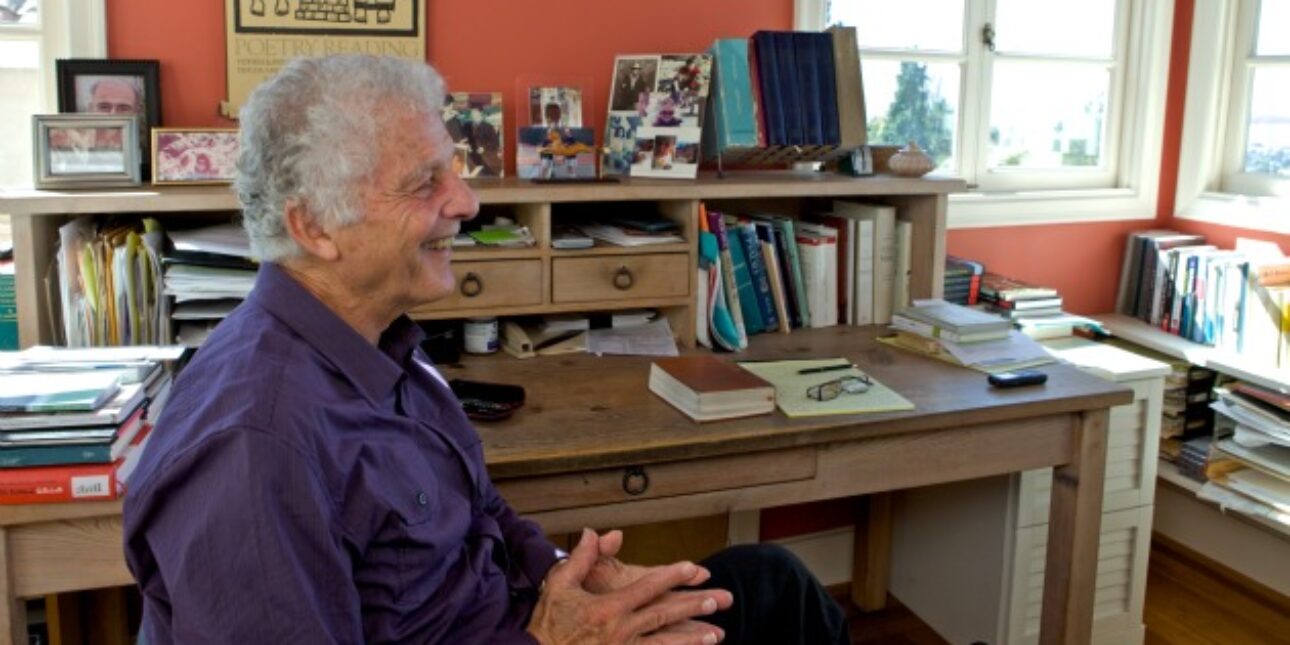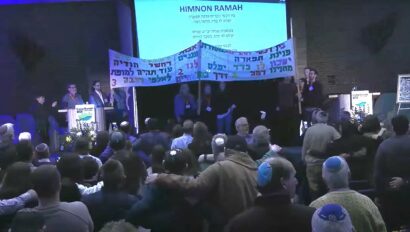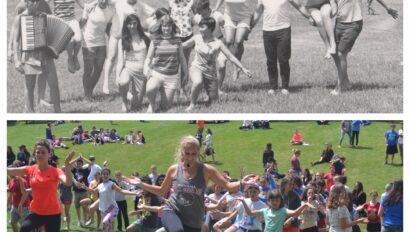
By Rabbi David Soloff, Executive Director
We recently reorganized one of the closets in our downtown office and found a small box with a couple of letters and postcards from the 1950’s and 1960’s. One letter was addressed to Robert (Uri) Altar. Inside was an 11 x 17” sheet, written in the style of a page of Gemara, in beautiful handwriting in Hebrew and Aramaic. The letter, dated August 14, 1954, was obviously sent from one friend to another and was an incredibly creative parody.
I thought this must have been written to the man known today as Professor Robert Alter, a leading professor of Hebrew Literature and Biblical Studies. I had to be sure this was not written to another person named Altar, though, since that is how it the name was spelled on the envelope. I contacted Professor Robert Alter at the University of California Berkeley to inquire if this was indeed his letter. First I sent him a scan of the letter and then based on his response I mailed him the actual document.
I received his permission today to share his correspondence with our camp committee. Professor Alter also mentioned that he has now reconnected with the camp friend who wrote the letter!
The text from Professor Robert (Uri) Alter:
Dear David Soloff,
Many thanks for sending me the letter, which must hold a record in being delivered after 57 years. I’ve deciphered most of it, though occasionally I can’t make out a word because of the combination of miniscule script and faded ink. It’s an extraordinarily deft parody of a page of Gemara (and paid me a great compliment because at 19 I had just spent my first serious year of Talmud study, something I was to get deeply involved in the next few years). The Hebrew and Aramaic usage is perfect, except for a repeated error in the smikhut of mahaneh. After prodding my memory, I recalled that in Ramah in the Poconos there was a Buddy Abramowitz. I’m pretty sure he was a JTS rabbinical student, so he would have been five or six years older than I was. I remember him as slight in build, fair-complexioned, wearing steel-rimmed or rimless glasses, and a gentle, thoughtful person. I don’t recall being especially close to him, but his letter seems to indicate that I had written him. In the summer of 1954 I was probably in Ramah in Connecticut after two seasons at Ramah in the Poconos, but he obviously thought I was in Wisconsin. I would love to write him now but a quick internet search did not yield results. Do you think you could get contact information for him via the Rabbinical Assembly? His full name is evidently Abraham Nahman Abramowitz, and I would guess he graduated JTS in the mid-1950s.
A few words about my experience at Wisconsin Ramah. I arrived there in the summer of 1951, not having a clue what the camp was going to be like. I was flabbergasted to discover that virtually everything went on in Hebrew, including much of the conversation among the older campers (I gather this is no longer the case). For me it was like entering a foreign country. I had had a pretty good training in the formal elements of Hebrew in Albany, New York (a long story), but I barely spoke Hebrew and had a limited vocabulary. Like a new immigrant, I strained to pick up essential new words like tokhnit and pe’ulah. But by the middle of the summer, I was getting along nicely and beginning to speak fluently (if, no doubt, somewhat incorrectly). This was a turning-point in my life. I found that I had embraced Hebrew as my language, a second language that I determined to make almost as good and as natural as my first. This led me to more summers at other Ramahs and to Columbia, where I could pursue studies on the side at the Seminary College of Jewish Studies, where at the time all lectures and class discussions were in Hebrew. It also led me, a couple of years after my first summer in Ramah, to begin to devour long novels in Hebrew, so that by the age of twenty I was fully literate in the language. It’s not only that Hebrew was to become a vital tool in my scholarship, both on modern Hebrew literature and on the Bible, but also that it became a second culture for me (I lecture in Hebrew, sometimes write for publication in Hebrew, and continue an on-going love-affair with the language). None of this would have happened without my experience in the summer of 1951. Though there are just a few friends I still recall from Wisconsin (including Harry Weininger, who died here in Berkeley a year ago), because I was an Easterner I then moved to the camps in the East, and there I made several lifelong friends.
Kol tuv,
Uri Alter
May we continue to inspire our campers and staff as Ramah Wisconsin inspired Professor Alter many years ago!





